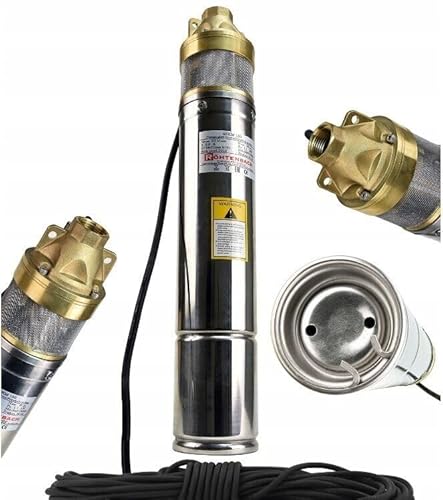Understanding Deep Well Pumps: What They Are and How They Work
What is a Deep Well Pump?
A deep well pump is a specific type of pump used to extract water from a deep underground source. Unlike standard pumps that are used for shallow wells, deep well pumps are designed to operate in conditions where the water level is significantly below the surface. They typically consist of a motor and a pump assembly, which can be submerged underground, drawing water up through a pipe to the surface for use in homes, irrigation, and other needs.
How Do They Operate?
Deep well pumps work by utilising an impeller mechanism that moves water upwards through a series of vertical pipes. When the pump is activated, the motor spins the impellers, sucking water from the aquifer into the pump. The design ensures that even when the water is located at considerable depths—sometimes even hundreds of feet below ground—the pump can deliver a consistent and reliable flow of water. Understanding the mechanics behind this allows us to appreciate the engineering involved in ensuring we have access to fresh water.
Choosing the Right Deep Well Pump for Your Needs: Key Features to Consider
Assessing Your Water Needs
When selecting a deep well pump, one of our primary considerations should be the volume of water we require. This can vary depending on household size or the scale of agricultural needs. It’s essential to gauge how much water we intend to use daily, as this will guide our choice of pump capacity.
Pump Depth and Width
The depth of the well dictates the pump type we are looking for. For deeper wells, we need submersible pumps capable of reaching those depths. Additionally, we must consider the diameter of the well; some pumps are designed for wider wells, while others fit more compact spaces, impacting our options.
Energy Efficiency and Power Source
Energy consumption is another key factor. We need a pump that balances efficiency with power, ensuring our energy costs remain manageable while providing sufficient water flow. Moreover, choosing between electric or solar-powered pumps can have implications based on our energy availability and environmental concerns.
Installation and Maintenance Tips for Your Deep Well Pump: Ensuring Longevity and Efficiency
Professional Installation vs. DIY
While we might consider installing the pump ourselves to save costs, enlisting a professional can ensure the pump is properly fitted according to specifications. Correct installation can prevent premature wear and ensure optimal performance. It’s advisable to have a trained technician carry out the installation to avoid potential issues down the road.
Regular Maintenance Practices
Once installed, maintaining our deep well pump is crucial. Regularly checking for any unusual noises or vibrations can indicate issues early on. Flushing the system periodically can also help prevent sediment build-up, which can impair performance. Keeping an eye on pressure gauges can provide insights into the pump’s efficiency and help us notice any drops that might suggest malfunction.
Winterization and Seasonal Care
If we live in areas with freezing temperatures, it’s essential to winterize our system. This involves draining the pump and ensuring all components are protected from frost damage, which can save us from costly repairs when the warmer months return.
Common Issues with Deep Well Pumps: Quick Troubleshooting Guide
No Water Flow
If our well pump suddenly stops delivering water, it could be due to power outages, blown fuses, or a tripped circuit breaker. Checking these components is the first step. If everything seems operational yet no water flows, the problem may lie deeper, potentially requiring professional intervention.
Low Water Pressure
Experiencing low water pressure can result from several factors, including clogged filters or issues with the pump itself. Regular maintenance of filters can prevent this issue. We also need to examine the pump’s pressure switch, as malfunctions there can lead to inconsistent water flow.
Excessive Noise or Vibrations
If our pump begins to make odd noises or vibrate excessively, it might suggest misalignment or mechanical wear. In such cases, reviewing the pump for any signs of damage or scheduling a maintenance check could help prevent more significant issues.
Comparing Top Deep Well Pump Models: Our Top Picks and Recommendations
Identifying Reliable Brands
When it comes to selecting a deep well pump, we recommend looking at trusted brands known for their durability and customer support. These brands often have a good reputation within the community and offer warranties that provide peace of mind.
Reviewing Performance and Features
It’s critical to read through product specifications, comparing flow rates, energy efficiency, and overall design. Look for models that offer features like built-in pressure control switches, which can enhance the pump’s functionality and simplify its operation for daily use.
User Reviews and Feedback
Before making a purchase, we find it beneficial to explore customer reviews. Real-world feedback can provide insights that specifications may not convey. Users often share their experiences regarding longevity, efficiency, and any issues encountered, helping us make an informed decision.

























